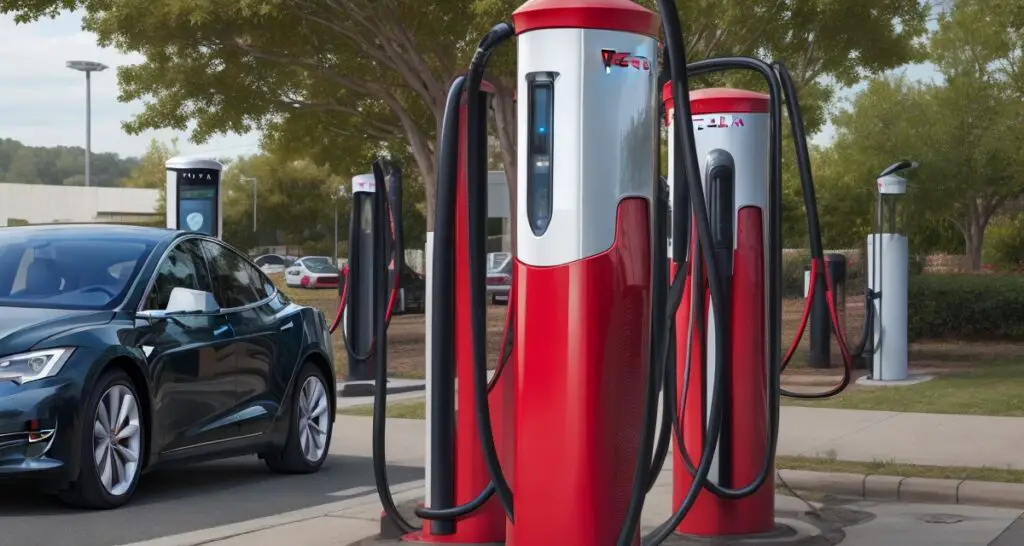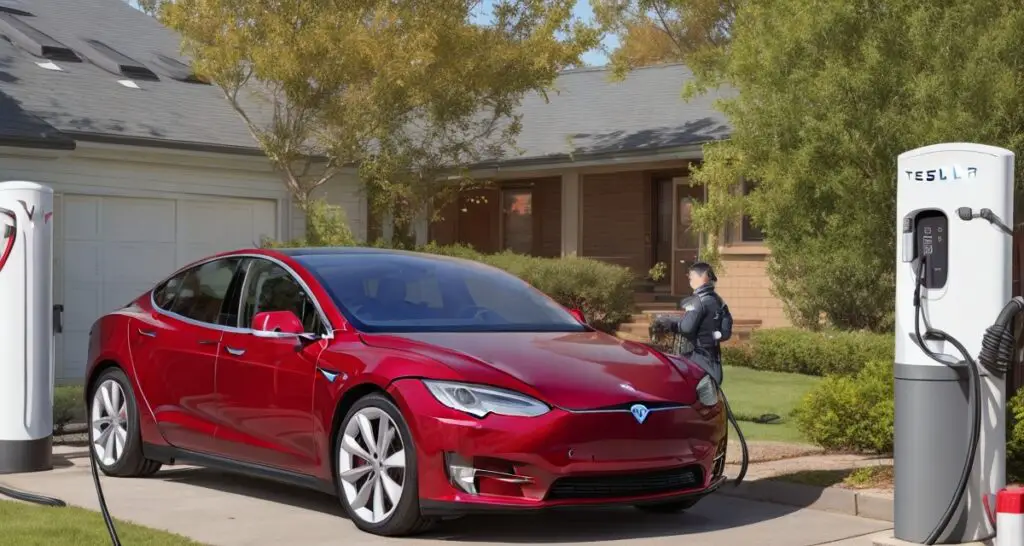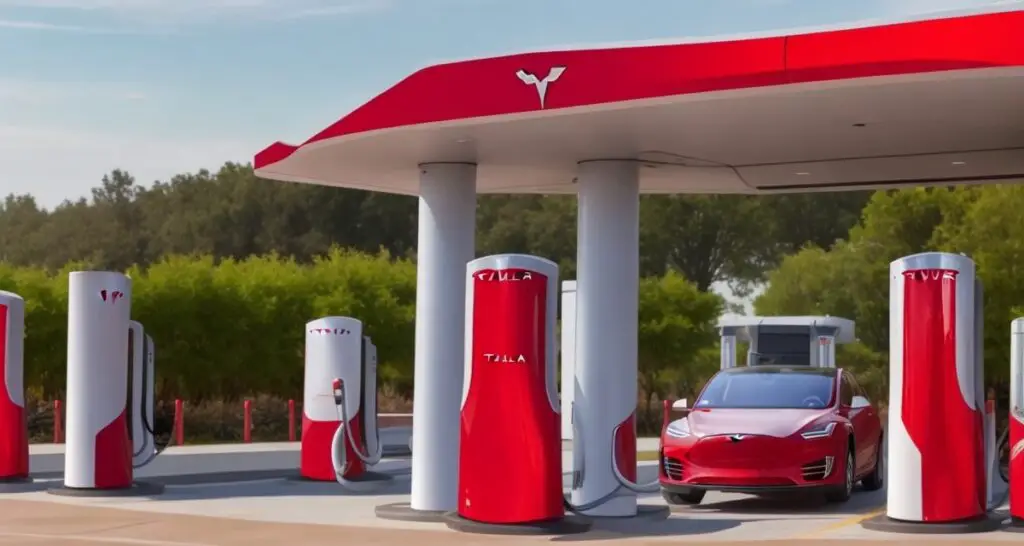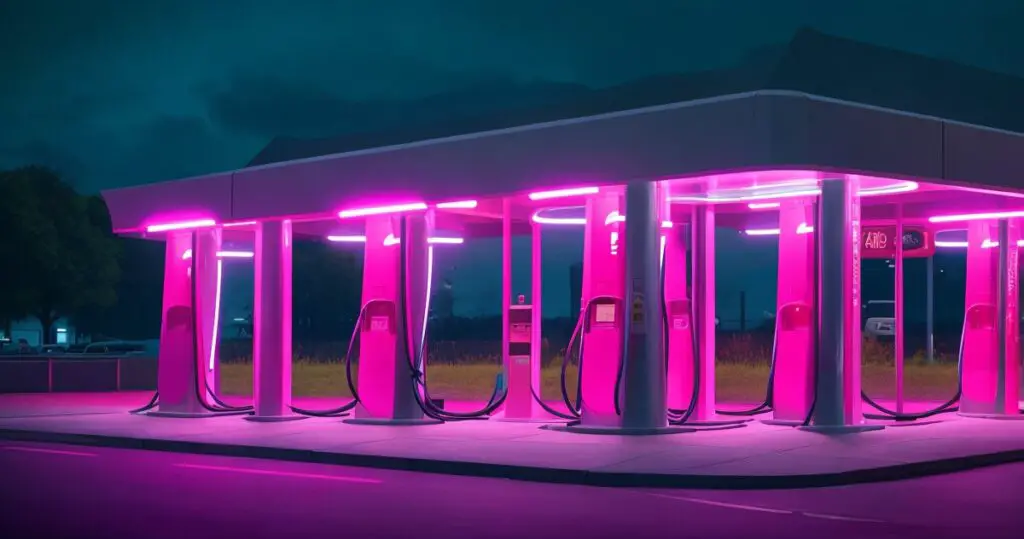When it comes to the world of electric vehicles, one question that frequently arises is, “How much does it cost to fully charge a Tesla?” With the increasing popularity of electric cars, particularly those manufactured by Tesla, understanding the economics of charging these vehicles has become a significant consideration for both current and prospective owners. The answer to this question depends on various factors, including the Tesla model, the location, and the prevailing electricity rates. In this discussion, we will delve into the intricacies of charging a Tesla and provide insights into the cost implications associated with this innovative and sustainable mode of transportation.
Exploring the Economical Aspect of Charging a Tesla Vehicle

When embracing the journey with a Model 3, Model Y, Model S, or Model X, the realm of affordability in comparison to a traditional gasoline-powered car unveils itself, provided one selects the optimal charging locales.
Enthusiasts of electric mobility frequently extol the virtues of cost-effectiveness in recharging electric vehicles, painting a narrative where the expense of energizing an EV is notably lower than the outlay for fueling a conventional gasoline vehicle. While this assertion generally carries validity, the entirety of the panorama proves to be more intricate than a simple proclamation that owning a Tesla or any alternative electric vehicle shall unfailingly generate monetary savings in the domain of energy expenditures. The crux of the matter pivots on the precise locations where the charging process unfolds.
The Allure of Charging Your Tesla Comfortably at Home

Unless the fortuitous circumstance of complimentary charging befalls you—some of the initial Tesla models delight in the privilege of complimentary Supercharger access—a most appealing avenue for energizing your Tesla rests in the welcoming embrace of your own abode. This choice, one might opine, is often accompanied by the gentlest depletion of your financial reserves when it comes to nurturing your Tesla’s power.
Embarking on a journey through the landscapes of North Dakota, one could revel in the notion of charging a Tesla Model 3 RWD from a state of emptiness to the zenith of fullness, all at the modest cost of $7, a vista that embodies a utopian fiscal vista. North Dakota extends the allure of the most economical electricity within the nation, gracefully averaging less than $0.10 for each unit of kilowatt-hour, and serendipitously, the foundational Model 3 graciously cradles a smaller battery in its core, distinguishing it from its Tesla brethren.
Yet, as the canvas unfurls further, encompassing the domains of larger batteries such as those possessed by the majestic Model S or the illustrious Model X, juxtaposed against the backdrop of the continental U.S.’s most distinguished electricity price—$0.34 per kilowatt-hour in the enclave of Connecticut—the landscape shifts. The cost of breathing life into these power-hungry entities swells, an investment nearly cresting at $40.
However, the tale does not merely pivot on a juxtaposition of recharging costs and the customary act of replenishing a gasoline tank. No, an equitable analysis, akin to comparing apples to apples, mandates a contemplation of how far the canvas of your financial gesture will unfurl within each automotive species. The tableau below adorns this narrative, illuminating the possibility of traversing the pathways of Tesla’s creation for a paltry sum—a mere smattering of pennies per mile. For the individual journeying the expanse of 13,500 miles, the nation’s average annual mileage, the passage of currency in the name of charging, while perennially ensconced in the nurturing aura of home, would gracefully span a spectrum between $405 and $1,755.
Thus, it remains evident that the grand tapestry of considerations extends beyond the realm of energy input, embracing the elegance of fiscal prudence and the allure of dwelling within the sheltering wings of one’s cherished haven.
| Cost of a full charge | Energy cost/mile | Annual energy cost | |
| Tesla Model 3 RWD | $7-$24 | $0.03-$0.09 | $405-$1,215 |
| Tesla Model Y AWD | $8-$26 | $0.03-$0.09 | $405-$1,215 |
| Tesla Model Y Performance | $9-$32 | $0.03-$0.11 | $405-$1,485 |
Personalized Figures Await, Tailored to Your Circumstances
It’s only natural that your specific figures will dance to a unique tune, choreographed by the interplay of your electricity’s monetary embrace and your vehicle’s real-world efficiency, a dance that embraces the nuances of elements such as weather’s whims and the brushstrokes of your driving style. To obtain a more finely tuned and precise portrait, one that harmonizes with your geographical context, we invite you to explore our article that delves into the captivating world of charging costs for electric vehicles in every state. Your journey towards clarity and insight awaits within those pages.
Exploring the Enchanting Realm of Tesla Superchargers and Their Costs

Within the embrace of Tesla’s extensive network, a symphony of 17,000 Superchargers beckons, offering a harmonious blend of convenience and service, albeit with a gracious cost attached. The Supercharger’s enchanting touch possesses the prowess to rekindle a Tesla’s energy from the brink of emptiness to a spirited 80 percent within the gentle span of 15 to 30 minutes. Yet, like all journeys, this endeavor is not devoid of expenses, with the nurturing electricity carrying a weight that dances about twice the sum of what one would tender to replenish their Tesla’s vigor from the sanctuary of their own abode.
The tapestry of Supercharger pricing is a canvas rich in hues, stretching from the tender brushstrokes of $0.25 per kilowatt-hour to the more intricate strokes amounting to $0.50 per kilowatt-hour, an array that finds its symphony in the geography of location. As you embark on the quest for affordability, consider embracing the companionship of PlugShare, an exquisite haven that serves as both a website and an app, guiding you towards the embrace of the most economically gentle stations that reside in proximity to your being.
The realm of these swift DC chargers typically welcomes the embrace of EV travelers venturing on the vast stretches of long-distance odysseys. However, in the realm of intriguing possibility, a subset of Tesla proprietors has kindled a unique ritual, engaging Superchargers as modern-day oases for their cherished electric steeds, akin to the role that traditional gasoline stations play for their internal combustion counterparts.
To further illuminate the path, the tableau below presents the captivating dance of energy costs, a dance choreographed by prevailing Supercharger prices. Within this choreography, the annual energy expenditure, akin to a captivating crescendo, is woven with the delicate thread of a supposition—13,500 miles of travel, all attended to by the nurturing embrace of Superchargers. As you ponder this symphony, the allure of Tesla’s Superchargers awaits, accompanied by the melodies of exploration and the gentle whisper of your vehicle’s journey.
| Cost of a full charge | Energy cost/mile | Annual energy cost |
| Tesla Model 3 RWD | $17-$35 | $0.06-$0.13 | $810-$1,755 |
| Tesla Model Y AWD | $19-$38 | $0.07-$0.14 | $945-$1,890 |
| Tesla Model S AWD | $29-$58 | $0.07-$0.14 | $945-$1,890 |
Embracing the Grace of Tesla’s Occasional Offerings: Free Supercharging
From time to time, Tesla graces new buyers with the enchanting gift of free Supercharging, often as the year’s end approaches or when a quarter bids farewell, adorning the path to ownership with an alluring tapestry of benefits. Over recent years, these delightful incentives have unfurled, extending their gentle touch to encompass a span of 1,000 miles or a year’s tender caress. For select Model S and Model X vehicles, the story takes on a deeper hue, as those fortunate souls who embarked on their journey prior to January 15, 2017, were gifted the symphony of free lifetime Supercharging—a wondrous legacy that traverses from owner to owner, a perpetual melody of convenience.
Discovering these adorned Teslas, with their opulent privilege intact, is akin to finding rare treasures within a verdant landscape. They exude an aura of desirability, commanding a special allure when they grace the stage of availability. Their existence stands as a testament to the cherished past and the legacy of ownership.
Yet, as you consider the siren’s call of these illustrious vehicles, let the wisdom of practicality guide your steps. With the gentle embrace of home charging presenting a cost-effective embrace, the value of these exclusive gems tends to shimmer most brightly for those who envision a voyage predominantly punctuated by the tender touch of Superchargers. It is a tale of balance, where the dance between benefits and outlay whispers its harmonious secrets, encouraging you to make choices aligned with your aspirations.
Navigating the Economics: Charging Your Tesla vs. Fueling a Conventional Vehicle

Within the heart of this comparison lies a revelation—electric motors, with their ineffable elegance, outshine their gasoline counterparts in the realm of efficiency. When you extend the nurturing touch of home charging to your EV, you unravel a world where frugality elegantly dances hand in hand with performance. This dance of energy is so harmonious that running an EV becomes a more affordable endeavor in contrast to propelling a gasoline vehicle of similar stature.
The symphony of efficiency rings loudly in the world of EVs. An impressive 87 to 91 percent of the consumed energy gracefully finds its destination at the wheels, propelling the car’s journey with vigor and grace. In the realm of gasoline vehicles, however, the same symphony delivers a mere whisper, as only 16 to 25 percent of the energy finds its purpose. This ineffable difference weaves a narrative where EVs revel in their elegance and sustainability, a tale often punctuated by the gentle sway of the Tesla Model 3, a vision of thrift that outshines even the most efficient gasoline-electric hybrids.
Yet, as the landscape unfolds, it does not always bask in clarity. When the embrace of public charging stations beckons, the story gains nuance. Here, the costlier nature of electricity can obscure the brilliance of efficiency an EV inherently possesses. The stage is set, and the spotlight illuminates a tableau that showcases the financial journey of a diverse array of vehicles. These vehicles, each bearing an EPA combined mpg rating, unfurl their tales in the context of fuel prices that gracefully span from $3.11 to $4.66 per gallon for the likes of Prius, Accord, and RAV4, while the rest of the troupe presents their performance against the canvas of premium fuel priced from $3.83 to $5.10 per gallon.
In this delicate ballet of economics, the choice resonates with each individual, guided by the rhythm of preferences and aspirations. Whether you choose to embrace the serene efficiency of an EV or tread the well-worn path of gasoline, the journey’s beauty remains in the fact that it is uniquely yours to tread.
| Cost to fill tank | Energy cost/mile | Annual energy cost |
| Toyota Prius | $35-$53 | $0.05-$0.08 | $675-$1,080 |
| BMW M340i xDrive | $60-$80 | $0.15-$0.20 | $2,025-$2,700 |
| Lexus RX500h AWD | $66-$88 | $0.14-$0.19 | $1,890-$2,565 |
The Essence of Embrace:
HOW MUCH DOES IT COST TO FULLY CHARGE A TESLA?
A remarkable facet of Tesla ownership emerges as a gentle guardian of your finances, ushering in the potential to trim away hundreds of dollars annually from your fuel expenditures. However, this treasure chest of savings reveals itself most generously when you’re bestowed with the privilege of home charging or the serendipitous discovery of public charging points adorned with the grace of free or subsidized electricity.
The enchanting story encounters a twist when the spotlight turns toward Superchargers and their companions in the realm of public charging stations. Here, the costlier symphony of pricing often unveils a landscape where the allure of driving an electric vehicle dances hand in hand with the realm of efficient hybrids or gasoline-powered cars. The journey, as always, beckons you to navigate the pathways of choice, knowing that each step is imbued with the music of your preferences and the echoes of your aspirations.
Conclusion
In the realm of Tesla ownership, the cost of a full charge weaves a tapestry of variables, including battery size and local electricity rates. As you embark on this journey, calculating the expense becomes an equation of battery capacity multiplied by the cost per kilowatt-hour. Yet, the story unfolds with nuance, accounting for charging efficiency and regional differences in electricity prices.
Ultimately, the cost to fully charge a Tesla extends beyond numbers—it embraces the individuality of your vehicle, your location, and your driving habits. It’s a dance between practicality and sustainability, offering you the chance to embrace a more informed, cost-effective, and eco-conscious path.
FAQS:
How much does it cost to fully charge a Tesla at home?
Charging your Tesla at home can be cost-effective. The exact cost varies based on your electricity rate and your Tesla’s battery capacity. On average, a full home charge might range from $10 to $20, but this can change depending on your location and energy rates.
How does the cost of charging a Tesla compare to gasoline?
Charging a Tesla is generally more affordable than refueling a gasoline car. Electric motors are highly efficient, translating more energy to the wheels. While the cost depends on local electricity rates, it’s estimated that driving a Tesla can be around half the cost per mile compared to a gasoline car.
Are Superchargers expensive for charging a Tesla?
Superchargers provide quick charging on the go, but they can be pricier than home charging due to their convenience. Supercharger costs vary by location and can range from $0.25 to $0.50 per kilowatt-hour. While convenient, regular use might add up, so it’s beneficial for longer trips.
Can I find free charging for my Tesla?
Yes, some early Tesla models may have free Supercharger access. Some public charging stations offer free or subsidized electricity. However, free options are becoming rarer. Apps and websites can help you locate such stations nearby.
What about charging at workplaces or public stations?
Charging at workplaces or public stations can have varying costs, often depending on local policies. Some workplaces offer free charging as an employee perk. Public stations might charge a fee per kWh or per hour of use, and the rates differ by location.

